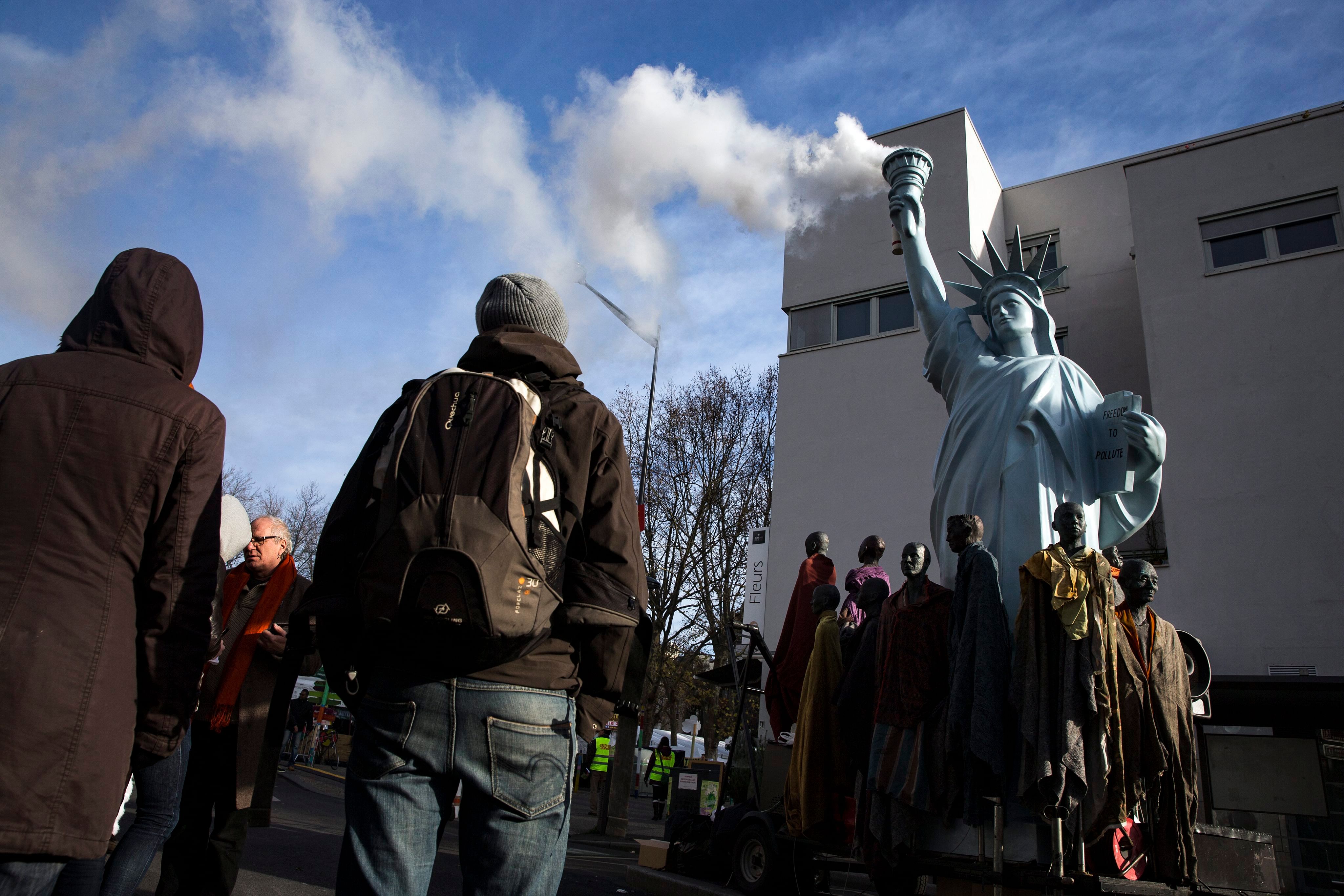The Paris climate talks have become too big to fail.
Right from the start, the French hosts piled on the pressure on delegates from nearly 200 nations. Last Monday, more than 150 world leaders gathered at the conference to call for an ambitious agreement to save the planet from overheating.
Last weekend, celebrity and business superstars descended on the French capital to lend their voices, adding to the momentum for a radical shift in the way we produce and use energy and perceive the value of our environment. All the while, evidence from scientists, on the growing pace of warming and its impacts, is also piling on pressure on negotiators.
At the halfway point, an agreement seems likely at the end of this week.
The real question is how ambitious it will be. From the start it was clear, based on the nearly 190 national climate action plans submitted before the conference, that the world is still on track to bust the 2 deg C limit that scientists say we must avoid. Even at 2 deg C, we risk catastrophic storms, droughts, floods and sea-level rise that could cripple economies.
This year, we've already reached half that level, the United Nations' weather agency says, with historic floods in recent days in Chennai, India, and northern Britain, and choking smog in Beijing and New Delhi giving a possible foretaste of the future.

The real test for the Paris meeting is an accord that commits all nations to a universal system in which they progressively ramp up their emission-cutting actions, regularly report on how those steps are doing, and are transparent about them. Ultimately, this will work only if there is trust among countries, and support for poorer nations.
Plenty of contentious issues still need to be resolved, particularly on finance, transparency and the legal form of the agreement. Ministers have now arrived in Paris to take charge of their delegations to try to complete the hard bargaining in the coming days.
For the moment, the mood is cordial. But underneath lie deep differences.
Developing nations want certainty on a deep pool of financing from 2020 that will help them pay for greening their economies, and gain access to clean energy technology at reduced rates and money to pay for adapting to the impact of climate change, such as rising seas and droughts that threaten crops and water supplies.
The cash is both vital and symbolic for poorer nations, which regard it as an acknowledgement of the West's historic responsibility for CO2 emissions in the atmosphere and also a sign of good faith in the negotiations. Poorer nations are insisting on clarity on both the sources of finance post-2020 and how it will be scaled up - a problem for the United States delegation since funding is controlled by a hostile Senate.
The Paris pact will also need to set short-term and long-term direction for CO2 emissions.
A key part of the pact will be setting out the timescale of regular reviews of national climate action plans that are the foundation of the new agreement. There is growing consensus that the reviews should be held every five years.
But for this to be effective, they would need to start by 2020 or even earlier.
Key, too, is the long-term goal for emissions. One option in the text sets 2060-2080 as the timeframe for emissions to fall to zero. Setting an agreed goal for the world to decarbonise will be an important signal for investors in renewable energy, electric vehicles and green buildings.
The legal nature of the pact is also being ironed out. The US has made it clear it cannot accept legally binding emission targets, a view supported by India and China. Instead, the system around accounting, that is, reporting and reviewing national climate action plans, is expected to be legally binding on all countries.
Reviewing national climate actions is a challenge for the talks. India and China, for instance, will not accept an external review process of their climate actions, saying this will infringe on their sovereignty. And a number of developing countries want a system that differentiates them from rich nations, saying they lack the technical capacity and need assistance for reporting, measuring and verifying.
The draft text also has options that call for wealthier states to take the lead in emission cuts with "quantified economywide absolute emission reduction and limitation commitments/targets, which are comparable, measurable, reportable and verifiable, cover all greenhouse gases and are implemented domestically without any conditions".
For developing countries, the option reads: "Developing country parties should undertake diversified enhanced mitigation actions/efforts".
How the age-old delineation between rich and poor states plays out remains to be seen. Many developed countries would prefer to steer away from differentiation, which has been a deeply divisive issue in past negotiations.
None of the issues on the table seems insurmountable, however, and the French hosts are pushing hard for compromises, saying this is the time to do a deal after more than two decades of trying to save ourselves from global warming.
But risks to the talks remain and with the stakes now so high to reach an agreement, last-minute interventions and protests could still add drama to the final hours.

